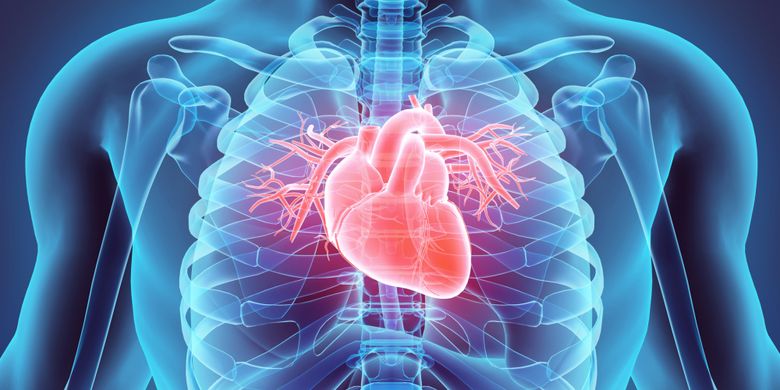KOMPAS.com – Heart disease is one of the leading causes of death in the world.
The US Centers for Disease Control and Prevention (CDC) data also mentions heart disease as the leading cause of death for most of the world’s population.
Although this disease is classified as deadly, we can minimize the risk.
Also read: Starting to be diligent in exercising, how come you even gain weight?
Types of heart disease
Many people think of heart disease with cardiovascular disease.
In fact, heart disease refers to problems and deformities in the heart organ itself.
Some diseases and conditions that are classified as heart disease include the following:
– Arrhythmia
Arrhythmias are abnormal heart rhythms.
– Atherosclerosis
Atherosclerosis is hardening of the arteries.
– Cardiomyopaths
This condition causes the heart muscle to harden or become weak.
– Congenital heart defects
Congenital heart defects are heart defects that occur from birth.
– Coronary artery disease
Coronary artery disease is caused by plaque buildup in the arteries of the heart. This disease can also be called ischemic heart disease.
– Heart infection
Heart infections can be caused by bacteria, viruses, or parasites.
Cause
Heart disease is caused by damage to the heart organs, coronary arteries, or a lack of nutrient and oxygen supply to the heart.
Heart disease, such as hypertrophic cardiomyopathy, can also be genetic.
There are many factors that can trigger heart disease. The good news is, we can control most of these risks.
Here are some risk factors that trigger heart disease:
- high blood pressure
- cholesterol level imbalance
- smoke
- obesity
- passive lifestyle.
Also read: Causes of Brain Tumors and Risk Factors
Heart disease prevention
Heart disease risk factors genetic traits we cannot control.
However, we can mostly control by doing the following steps:
1. Eat a balanced nutritious diet
We can do this by eating foods low in fat and high in fiber.
Also, make sure to eat five servings of fresh fruit and vegetables every day.
We must also increase our intake of whole grains and reduce our consumption of salt and sugar. Also avoid consumption of unsaturated fats because they can trigger heart disease.
2. Exercise regularly
Regular exercise helps strengthen the heart and circulatory system, lowers cholesterol, and maintains blood pressure.
3. Avoid smoking
Smoking is a major risk factor for heart and cardiovascular disease.
Research in the journal BMJ proves that smoking every day, even just one batag, can significantly increase the risk of heart disease.
4. Routine health checks
Regular health checks are very important to find out any risk factors, such as high blood pressure and diabetes, that can trigger heart disease.
– .


